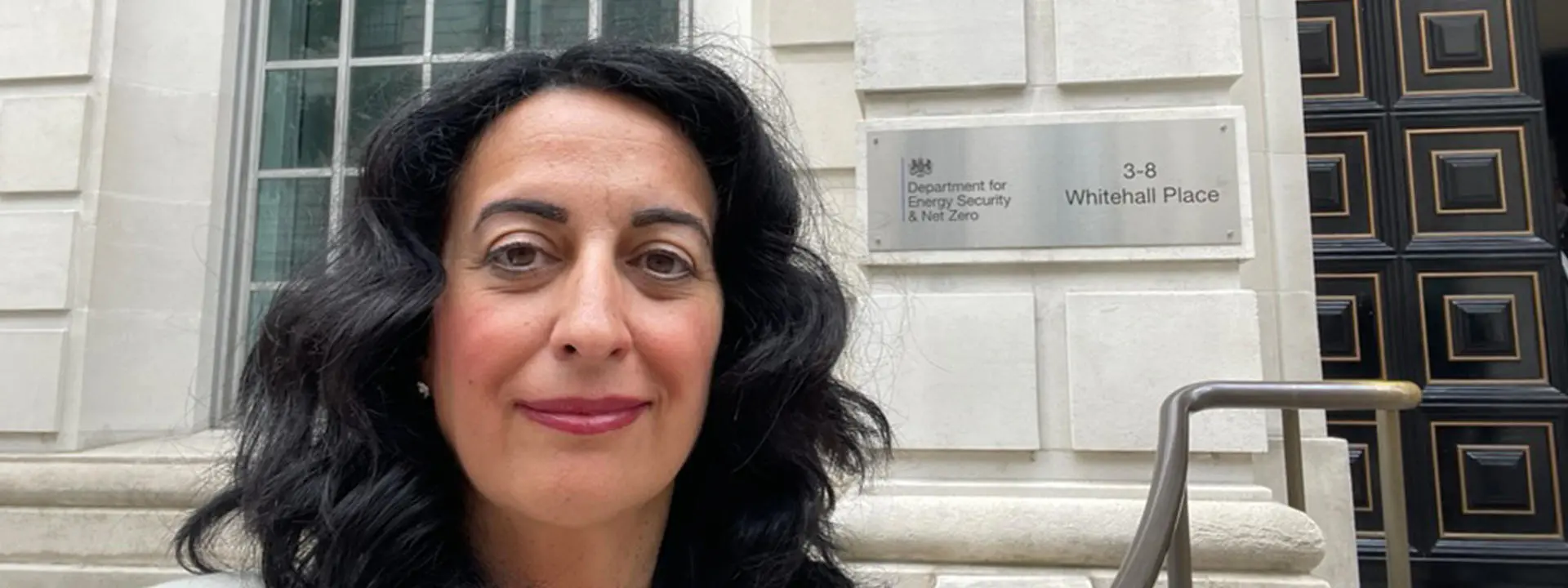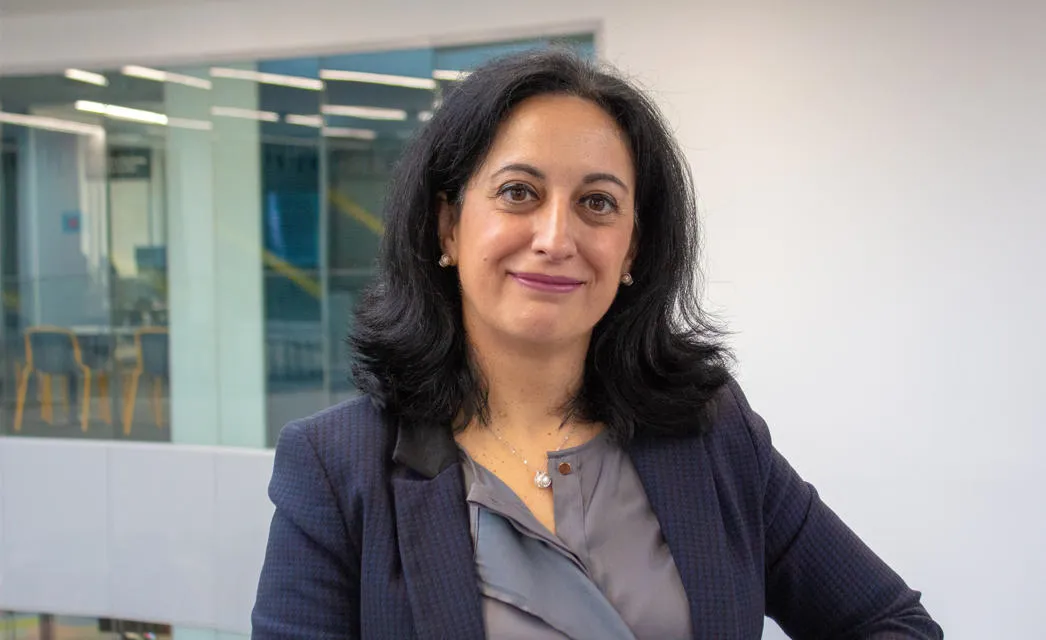Heriot-Watt energy and sustainability expert appointed to new UK government advisory body

Professor Mercedes Maroto-Valer from Heriot-Watt University has been appointed onto a new UK government body to guide the country’s energy security and net zero policies.
The scientist and engineer, who is also leading the UK’s efforts to decarbonise the country’s industrial heartlands, has been selected to join the Science and Technology Advisory Council (STAC), convened by the Department for Energy Security and Net Zero (DESNZ).
The STAC brings together 16 highly esteemed academic and industry experts to provide robust, scientific, evidence-based information to support key decisions as the UK’s energy system is overhauled to reach clean power by 2030.
It is an honour to join the STAC at such a critical time for the UK’s net zero journey.
Their expert advice will allow ministers to access the most up-to-date and well-informed scientific evidence, improving decision-making and effectiveness of policy implementation.
Speaking on her appointment, Professor Maroto-Valer Deputy Principal for Global Sustainability at Heriot-Watt University and Director of the UK Industrial Decarbonisation Research and Innovation Centre (IDRIC), said: “It is an honour to join the STAC at such a critical time for the UK’s net zero journey. The pace and complexity of the energy transition demands rigorous and independent science-based advice. I look forward to working with STAC experts to provide recommendations that inform key government decisions and support the Prime Minister’s Clean Energy Superpower Mission.”
Through her leadership of IDRIC, Professor Maroto-Valer drives a multi-disciplinary research programme aimed at delivering innovative solutions for the decarbonisation of the UK’s energy-intensive industries.
Her influence also extends internationally, as a member of the Council of Engineers for the Energy Transition, which advises the United Nations Secretary-General on accelerating global clean energy transitions. She also represents the UK at Mission Innovation – Technical Advisory Group, a global action-oriented platform to accelerate progress to net zero.

Energy Secretary Ed Miliband said: “Evidence-based decision-making is fundamental to the drive for clean power and tackling the climate crisis, with informed policymaking the key to securing a better, fairer world for current and future generations.
“To give our mission the very best chance of success, the Science and Technology Advisory Council will draw on the knowledge and wisdom of some of the finest scientific minds of the nation – because clean power offers a huge prize of energy security, lower bills and good jobs.”
DESNZ Director General Chief Scientific Adviser Paul Monks said: “Robust scientific research and evidence is vital to inform decisions, as we break new ground with the mission for clean power by 2030 and accelerate to net zero.
“I look forward to working with some of the country’s most esteemed climate and energy scientists, engineers and mathematicians, to provide comprehensive and considered advice to government on some of the greatest challenges of our time.”
Professor Richard A. Williams, Principal and Vice-Chancellor of Heriot-Watt University, praised the appointment, saying: “Mercedes’s appointment to this influential government advisory council is a testament to her world-leading expertise and unwavering commitment to sustainability. Her insights will be invaluable in shaping net zero strategy, and we are proud to see Heriot-Watt’s impact reflected at the highest levels of government policy.”
The STAC supports the UK Government’s ambition to become a global clean energy superpower – aiming to deliver clean power by 2030 and accelerating to net zero – by positioning science and technology at the heart of the department’s strategy, policy, delivery and decision-making.
Heriot-Watt University is committed to cutting its carbon emissions and aims to achieve net-zero operational emissions by 2035.
Last year, it published its Climate Action Framework, setting out 10 commitments which align with the United Nations Sustainable Development Goals.